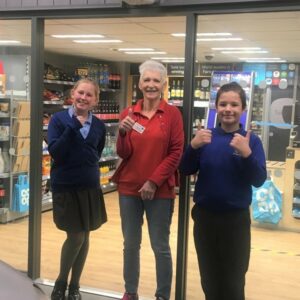Lifeskills for living safely
Every year in Britain, accidents kill approximately 14,000 people and seriously injure over 700,000. The financial impact of accidental injury is substantial, costing the UK around £20-30 billion per annum, and increasing pressure on the emergency services and hospitals.
Accident prevention, however, can be both simple and relatively inexpensive to deliver.
Lifeskills opened its Learning for Living education centre in January 2000 to provide vital training for children and individuals with learning difficulties to take personal responsibility for their own safety and live their lives with confidence.
The centre incorporates realistic interactive activities in which, with the support of trained volunteer guides, attendees experience different scenarios, assess risk and cope with difficult or dangerous situations, learning from their mistakes. These scenarios range from deciding which types of food to buy at the supermarket, how to react in a house fire and practising how to make a 999 phone call.
The charity has built a solid reputation as a centre of excellence: in over 22 years, more than 175,000 people have benefitted from its training to reduce accidental injuries.
“What a fantastic organisation, I can’t recommend them enough, a lovely group of people running such an amazing service.”
– Lily, Lifeskills Volunteer
As a result of the pandemic, Lifeskills temporarily closed its doors in March 2020; school and community group visits were suspended, and its volunteer workforce was significantly reduced. The charity adapted its working practices and developed new video resources which enabled 120 schools to continue their safety training programmes. Nevertheless, the number of people being trained dropped from pre-Covid levels of 13,000 people per year to just 7,500.
In October 2021, the centre reopened and began welcoming school groups again. At this time, Lifeskills sought funding of £5,000 from SMV to assist in replacing the volunteer workforce that had been lost.
24 new guides were trained and, since qualifying in April 2022, have delivered over 200 sessions to 800 Year 6 schoolchildren.
In addition to providing potentially lifesaving skills for children, the grant also allowed people to take advantage of the huge personal benefits of volunteering, at a time when many had been furloughed or made redundant as a result of the pandemic.



Three of Lifeskills’ volunteers: Donna, who has completed over 100 sessions, Roger (500) and Judy (1000)
Case Study:
In late 2021 Amy* was out of work and applied to be a volunteer guide. She had been suffering with her mental health and was unsure of herself, nervous about taking on the role. With the support of Lifeskills she persevered and qualified as a guide. Since then Amy has thrived in the position and subsequently has taken on additional duties supporting children with learning difficulties. She is also now the official representative for all of Lifeskills’ volunteers. Being a guide has given Amy renewed self-confidence and she now has a part time job. Amy directly cites her involvement with Lifeskills as helping her to achieve this.
* Name has been changed to protect privacy
